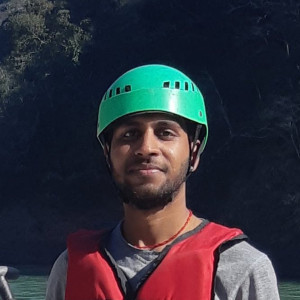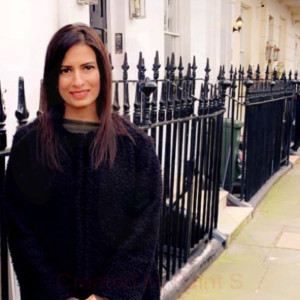Chapters
Few career fields are as 'safe' as Information and Communications Technology (ICT). You only need to look around to see how true that statement is. You don't even need to look that far. Just think about living a day without your mobile or any other device.
You and your mates talked about getting together, but you don't know where or when - and you can't send them a message. Or even (GASP!) ring them. So you venture a guess that everyone will be at your favourite pub. You stop by the bank machine on the way, discovering you can't get your hands on a single bob. Financial technology (FinTech) runs on ITC systems, too. And so your day will go.
As our world becomes ever-more connected, we'll need legions of technicians to install and maintain the systems' infrastructure. We'll also need innovative thinkers to design and develop ever-more-resilient strategies. That's why the GCSE ITC curriculum covers:
- programming
- algorithm fundamentals
- cybersecurity
- data representation
- network systems
- computer systems' architecture and components
The GCSE ICT curriculum isn't all about computer hardware and software. Like GCSE Construction, your ICT learning programme deepens into theoretical, moral and ethical issues. This curriculum is both informative and instructive. It presents topics the average data consumer often doesn't think about.
If you're reading this, there's a good chance you want to develop your knowledge of current and emerging technologies. You likely want to learn how to use various ICT tools and techniques. You may have already given thought to ICT's impact on societies. Let your interest in this subject guide you to one of the most versatile GCSEs you could select.

Why Choose GCSE ICT?
Do you read or watch any news? If so, you're undoubtedly aware of every Briton's economic concerns. You know inflation is rampant while the jobs market is getting even tighter. And good jobs, with security and decent pay, are getting harder to find.
Today's students need an education that prepares them for work in various specialised fields. That doesn't mean you have to learn many specialities, of course. You're welcome to if you have a mind to do so. But cultivating the skills needed across most industries would be far more effective.

Those include the baseline transferable skills: critical thinking, problem-solving, team-building and leadership. And communications skills, too. But you can develop and hone such assets with practically any other GCSE. They're all specifically designed to impart them.
This GCSE course goes beyond those vital skills. You'll learn about computing; how to use various software platforms and applications. You'll discover how to organise and analyse information, skills that will train you to see issues from different perspectives. You'll learn how to create task-specific digital information, including web design. And you'll know which systems to use to resolve communications problems.
Let's a flashback to our assertion in this article's introduction: technology drives or influences every aspect of modern life. Thus, you might reasonably argue that learning everything you can about technology, particularly at this course's fundamental level, could propel you into a stable and satisfying career. What sort of work could you do?
Careers in ICT
Our world revolves around technology. Is it any wonder that anyone learning any aspect of this discipline will be in high demand? Communications and technology skills are very much in order. That call doesn't look set to end any time soon, either. Here a just a few career paths you might investigate.
As a data analyst, you'll comb through massive piles of information to find the statistics your company wants. For instance, if the corporation you work for wants to run a leaner operation, you'll analyse production data to find where to make the needed cuts. You'll manage and present information supporting leadership positions.
Information assurance analysts are one step below cybersecurity specialists. They write and install programs to ensure a computer network's security and integrity. This professional runs routine diagnostics on such systems to ensure everything runs properly. And they provide that such systems can perform all of the company's required operations.
If you hire an information assurance analyst, the company's computer and information systems (CIS) manager would be your boss. Their job isn't just to make sure you do your job. They have to stay on top of every new development in the information systems world. They have to plan system upgrades and oversee the installation of new equipment and software.
Digital strategists usually work in a firm's marketing department. As the job title implies, they are responsible for the company's online presence. That includes everything from social media to websites. These job candidates need sharp online presentation and social media skills. Also, they may double as a database analyst to plan their next extensive marketing campaign.
All these jobs and more - privacy coordinator, computer support specialist, information security analyst and many more- start with fundamental knowledge of information systems. Admittedly, they all require further development; most employers want their IT staff to have at least a Bachelor's degree. But you have to start somewhere, don't you? Learning everything GCSE ICT has to offer is a great introduction.
GCSE ICT Revision Materials
Any job worth doing is worth doing well. Lord Chesterfield
We'll take the job Lord Chesterfield is referring to mean both the position you'll land later and the position of acing your course. The curriculum is not overly complicated. And besides, being a tech user, probably for your whole life, you likely already have a sense of this course's finer points. But it never hurts to have additional resources. What follows are our recommended resources websites for GSCE ICT.

BBC Bitesize
This handy resource summarises all the main points students need to know to obtain top marks in their courses and exams. Topics include ICT systems, Hardware and Software, Networks, Data, and more. Everyone's favourite go-to revision source provides you with text material, activities and tests. You can also take their mock exams and check your answers against their corresponding marking schemes.
Do you know about BBC Earth Lab? This YouTube channel presents an impressive array of scientific topics. Unfortunately, you won't find a playlist for computing or information technology. However, among all the fascinating subjects they present, you'll find videos like how the binary system underpins every computer on Earth. If you have the time, browsing this channel is like a treasure hunt.
BBC Teach
This site is geared towards teachers, as its name implies. That doesn't stop you from accessing their vast stores of informational clips. You only need to direct yourself to their site, select 'Secondary' from the menu bar atop the page and scroll down to 'Computing'. Both options offer a long list of topics to explore and learn more about.
Your teacher may stream video content in class, or you can access this platform at home. Either way, you'll hone in on specific topics, including computer systems, data communications, legal framework, modelling, simulation, and software. Much of the content revolves around practical tips like using correct font sizes and styles. But some videos relate technology to critical social issues like modern cybercrime, illegal file-sharing regulations and the legality of the national DNA database.
You'll also find videos discussing how ICT is used in modern-day business and everyday life. You could get lost learning how cash line machines work and how computers have changed the course of wars. Wouldn't you like to know how institutions like the Royal Botanic Gardens rely on IT?
Even if you've no interest in reading snippets and watching videos, be sure to catch the interview with Sir Tim Berners-Lee. He is renowned for inventing the world wide web. We'd go so far as to say that this clip should be required viewing for students considering any ICT career.
Bonus: one final BBC resource. School Report is a now-defunct website. In its heyday, it was a forum for students aged 11 to 16 to create and broadcast their news reports. It gave them a taste of what being an actual BBC journalist is like. It covers many eclectic topics, some of which discuss students revising for their GCSE ICT exam. The page is still live, so that you can find many exciting stories covering this subject. Be sure to read the ones that discuss online safety and cyberbullying.
Twinkl
You're probably familiar with this site; you likely accessed revision materials for your other school-leaving exam subjects. But did you look for any information technology resources? If you browse their internet research lesson pack, you'll find topics like How to Research and Technology Activities. Some offerings may be way below your level, but you can still find plenty to diversify your studies.
Quizlet
Twinkl may be a bit of work to comb through, but Quizlet delivers revision materials for the asking. You may do so by typing Quizlet ICT into your search engine or going directly to the site and searching for flashcard decks. You do know that flashcards are what this platform does best, right?
Beware that the ICT Quizlet revision resource isn't nearly as well-organised as those for GCSE Chemistry. Still, these Quizlets are an excellent revision resource. It presents curriculum aspects in several different ways: in a list, in flashcards, as a test and even a game. The more you play with Quizlet information, the better you will retain and understand it.
Webopedia
It won't take long after classes start to discover that your ICT curriculum is laden with words you might never have heard of. No need to panic! Webopedia is the most comprehensive encyclopedia of information technology terms. They started in the early internet days (1995) and have been compiling resources ever since.
That's right, resources. Webopedia is so much more than a glossary of terms. You can explore insightful articles that explain concepts like social listening and sentiment analysis - a digital marketing skill. They regularly upload useful information like lists of cybersecurity acronyms and the best web application firewalls.

Exam Board Resources
No list of GCSE revision resources would be complete without past papers, marking schemes and examiners' reports. That leaves us with a bit of a quandary, though. Unlike GCSE Further Maths, every exam board calls this curriculum something different. And while they may have some features - topics in common, others go far beyond the ICT core skills taught in some courses.
Still, nobody has ever suffered from an excess of knowledge. In that spirit, we present all exam board offerings. You get to choose which materials will be most helpful to you.
Edexcel
If you sit for the Edexcel exam, make this site one of your first stops. This exam board reworked their entire GCSE ICT curriculum three years ago. This platform provides revision materials, sample assessments, examiner reports, question papers, a student guide and vital support material for teachers. If this is your exam board, you should check for any amendments and important notices you need to stay atop of.
AQA ICT and Computer Science
Devised explicitly for AQA exam study, this excellent site includes information on subject content. AQA also provides updates, teaching and learning resources. Naturally, you'll find two years' worth of past papers and mark schemes but no examiners' reports. Instead, you'll find such commentary embedded in the marking scheme papers.
OCR
This exam board no longer offers their ICT course. However, they have a computer science course, recently updated to meet the Office of Qualifications and Examinations and Regulation (Ofqual) standards. Some of the available information may be more advanced than you need for your ICT course. But it doesn't hurt to look ahead a bit.
WJEC
This site also contains specimen assessment materials, teacher guidance notes, revision materials, and past papers.
We hope that you have found these resources helpful. If you have any websites you think should also be included in this blog post, please feel free to add them via the comments section below.















